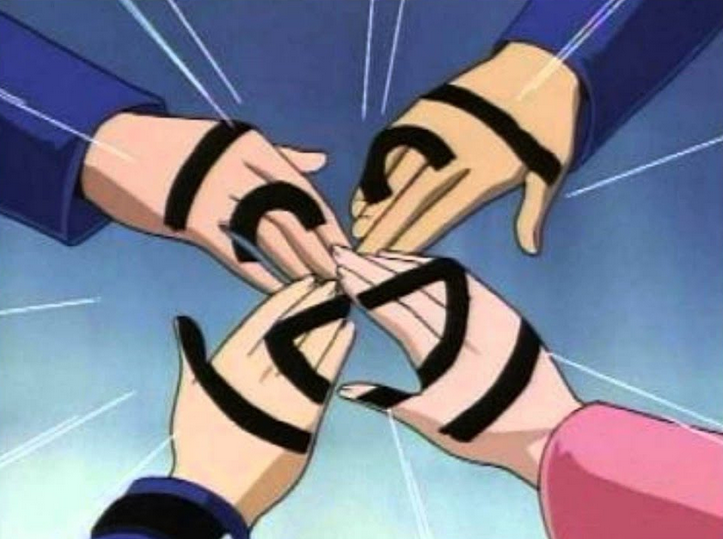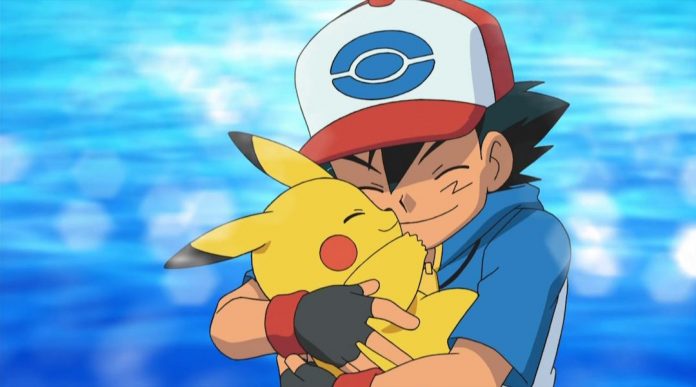The power of friendship is a trope that captivates audiences’ imaginations. The story has been played a thousand times, with a hero of a thousand faces. A villain mocks the hero for relying on others, insisting that it only makes you weaker. Then the hero’s friends cheer them on, they get a new form or power-up, and in the end they win.
A lot of different anime and manga series come to mind when discussing this trope. Naruto, Dragon Ball Z, Code Geass, Yu-Gi-Oh!, Digimon, and Pokémon, just to name a few. But the trope itself is far more wide-reaching and more culturally ingrained in collective watchers’ consciousness.
For analysis sake we should define the “power of friendship” trope. In fiction, we are looking at the origins and effects of comradeship, community, and interpersonal relationships. Anything from serving your friends to serving the common good can reasonably be defined as the power of friendship. Japan has a more tangible relationship to ideas of collective struggle and reward as well.
It’s hard to pinpoint where any trope comes from. However, Japan has a deep and rich history with communities. To analyze what gave birth to the power of friendship, we can look at its history through media. This can include poems, books, movies, shows, anime, and manga. These mediums exist in tandem with society, shaping each other until they reach the modern interactions of anime and manga.
The “indigenous” religion of Japan, Shintoism, can find its roots in collective culture, having no central authority, text, or creator and being much a label of our own understanding for a different culture. However, the practices being around since about 300 BC rely mainly on local communities to keep customs and traditions alive and relevant rather than relying on a central “church”.
How Japan Culturally Embraced Community

For most of Japanese history, the idea of furthering your community through religion has been very strong. In fact, the notion of saisei-itchi, or the union of religious authority and political authority, has long been prominent. Shinto’s flexibility regarding morality and doing good has been a frequent source of criticism, especially from those arguing that the religion can be used by those wishing to legitimize their authority and tyrannical power.
More examples include the militarized and disciplined lifestyle of samurai warriors who had existed at various points in Japanese history. The code of conduct for samurai was largely unwritten and dictated by societal norms. Then, in the 19th century, the Bushido was written. It focused on moral character and the utter loyalty to the common good, centered on a feudal lord or emperor.
It was the book Total War by Eric Ludendorff, a German imperial general, that talked about the states’ duty to serve the common good enforced by the army. This idea made headway in circles of Japanese officers in the lead up to the second World War. While the various factions of the Japanese army believed in different causes, they all believed in the army’s role in serving the common good of the Japanese people and the Emperor.
Furthermore, on the role of the imperial royal family: they were seen as a central unifying authority for Japan until the modern age. They were not treated as merely royal, but gods who lived on Earth among men.
The Foundations of the Power of Friendship Trope

The role of literature in Japanese culture has done much to represent Japan’s collective nature. A very famous author who would arguably kick-start modern contemporary Japanese literature was Natsume Soseki. Through famous novels such as I Am A Cat and Kokoro, Soseki explored themes of Japan in the modern age going into the 20th century industrialization. He also explored the relationships between the self versus the group in all terms such as art, success, and emotions.
This has a profound effect on people day to day. In work places, companies in Japan will often use group rewards and group work in order to boost productivity. In Japanese society, employees prefer not to compete against one another in work environments, as this could greatly interfere with personal relationships. Other effects of collective team building come in the form of gift giving and nights out with work colleagues, a common practice in Japanese culture.
Additionally, this leads to workers rarely taking vacations or time off to spend time with family, only choosing to take Sundays off each week. Because of this, the government mandates a lot of holidays for workers, including but not limited to “mountain day” and “golden week”.
Traditionally, households in Japan normally held three generations of a family, with adult children living with their parents as well as their own spouses and respective children. While unmarried couples rarely lived together, further emphasizing a commitment to collective family units. Although in modern times, these trends are on the decline.
Conclusion
In conclusion, Japan is a society much different than our own in the West. Through common shared aspects such as religion, literature, and work ethic, a shared national identity can come around. An identity based around taking care of your environment and playing your part in a larger societal structure.
While these notions of collectivity haven’t always been used for good, we can see just how ingrained these practices are. Parts of Japanese media has explored the devotion of people to something greater than themselves for quite some time. And it’s fair to say that anime plays a small part in the much broader picture of Japanese society. However, through our understanding of all of this, we can see that Japan has been using the power of friendship for hundreds of years.
What are your thoughts on the power of friendship? Let us know in the comments below or on Twitter!




